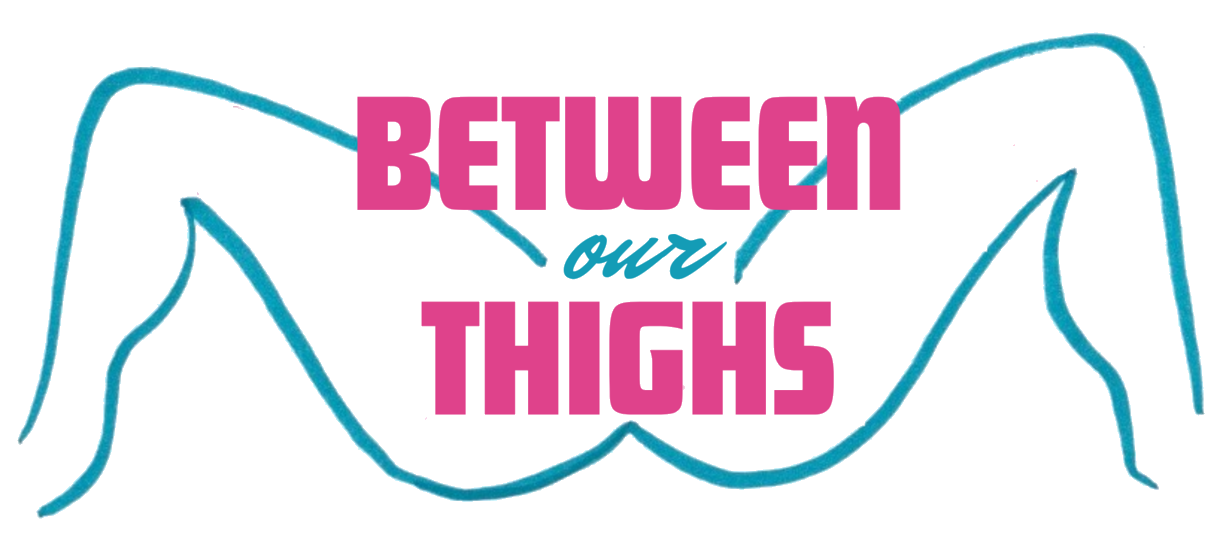When a Self-Induced “Dry Spell” Is Sometimes Necessary
Essentially, going through a dry spell means that a person is not having sex. ‘Sex’ can be defined differently from person to person; for some, a dry spell involves no penetrative sex while, for others, it could be no sexual play, but kissing might be acceptable. Some folks define it as no physical contact whatsoever.
That said, not getting laid — as horrific as the idea would have sounded to me when I first began having sex and was absolutely loving it — can actually be beneficial. As in, getting-your-life-together-and-figuring-out-what-you-want beneficial. Truth be told, after you get over the initial hump (no pun intended), it becomes a lot easier to deal with.
While surviving a dry spell can be difficult, it’s sometimes necessary. Here’s why I opted for a self-induced dry spell, and how it helped me become a better person for myself and for my next long-term partner.
Ask yourself why not having sex will be beneficial
Deciding to put yourself through a dry spell is up to you and should be done under your own terms. There are so many reasons that a person can choose this for themself, ranging from ‘just because’ to using it as a method to cope with a traumatic experience. That said, the reasons can be numerous, can be endless.
Personally, I decided to experience a self-induced dry spell for a couple of reasons. I found that getting over a breakup was a lot more difficult than I had initially anticipated, and so, for me, it made sense to put the brakes on physical relationships to figure more out about myself. Why am I so hung up on one person? What can I do to move on?
From here, I faced the truth that my feelings of love and mental health were very much intertwined. Having been at one of my lowest emotional points leading up to and throughout that relationship, I became overly dependent on my partner. Now that they were gone, I didn’t know how to handle things on my own. Thus, the dry spell carried on — leaving me striving towards improving my sense of self-worth, self-love, and overall confidence in who I am as a person.
Set your personal boundaries
Before diving headfirst into your dry spell, set some limitations for yourself, as well as reasonable boundaries that work for you. In truth, these boundaries can vary drastically from person to person, so keep in mind that there are no ground rules set in stone as to what makes a ‘good’ or ‘bad’ dry spell.
Some people opt to steer clear of all sexualized physical contact — kissing and masturbation included — but are fine with sexting or sending nudes. Others decide they won’t have penetrative sex, but are okay with oral (fellatio and cunnilingus) or manual (handjobs and fingering) sex.
For me, I initially opted for no sexual contact (with another person) at all — no kissing, no foreplay, and definitely no penetrative sex of any kind. I also didn’t feel comfortable going on dates with anyone, as I was still hurt and angry. All I could imagine was going out for drinks with some poor, unsuspecting guy and bursting into tears on the date before spending the remainder of the outing talking about how much I missed by ex. All I could picture was becoming one of those first date horror stories, a tale this person would be telling for the rest of their life.
Be okay with those boundaries changing
After a few months of living with these definitive rules I had set for myself, where I didn’t even allow the acknowledgement of a stranger on the street, I realized I had jumped the gun on these restrictions. Who knew going through a dry spell would be this tough?
While I wasn’t sure about sleeping with someone new, I knew with certainty that I wasn’t ready to make it ‘official’ with anyone. So, I decided to take baby steps and see how things went. My comfort levels with reintegrating myself back into what I (eventually) hoped would lead to a long-term relationship again was shaky. At the time, the most challenging part was acknowledging that it’s okay to feel totally into something at one moment and then wholly against it not long afterwards.
Learning to be okay with those initial boundaries changing — as well as the new limitations — is vital. We can’t grow and flourish into better people capable of showing ourselves the love we deserve if we continually reprimand and judge ourselves for our innately human feelings. Take these changes in perspective and ask yourself why the feelings are arising. Our emotions are there to teach us, so it becomes crucial to introspect during these times to grow.
Don’t feel obligated to explain yourself
The fact that you are not having sex is nobody’s business but your own. At the end of the day, you are the one that knows best for you; you are the only one able to access your thoughts and feelings and can consequently figure out how best to deal with them. As well-meaning as people may be, do not allow them to sway you into feeling inadequate or silly about your choices.
Friends, and sometimes even family members, may chastise you for not “putting yourself out there” to meet new people, go on dates, and develop a sexual relationship to reach what they believe will be fulfillment. While this may be the ideal route for them to take if they were in the same situation, it doesn’t mean that it’s the right option for you.
What’s more, if you are on a date and are not down to engage in any sexual activity — or, maybe, have made it clear that you are only open to some things — and your date doesn’t respect that, get out. In every type relationship, consent for every sexual act is both crucial and necessary. Someone who does not respect that, whether they force themselves on you or are “just” trying to convince you to change your mind, is someone to avoid.
You can still have fun and meet new people
With this all said, if you feel comfortable doing so, you can enjoy dating people without things ever becoming physical. I found that I developed a healthier sex-positive attitude by going out and meeting new people — folks that I had no intention of ever engaging with physically (which I had told them from the get-go*). Besides, going on dates and meeting new people can be fun; I had started to want to step out of my comfort zone and experience this.
So, with my close friend’s help, I wrote my dating profile, figured out what to talk about on a first date, and off I went. While some of these dates were awful, I did manage to have a good time simply by getting out there and talking to other people. All the while, I was open to the fact that maybe I might actually fall for one of these dates, allowing the option to tweak my previously set boundaries as necessary.
*If you do not feel comfortable saying the words “I have no interest in sleeping with you today,” you can say something along the lines of: “I’ll be heading out at [insert time you want the date to end].”
When you start dwelling on how to get out of the dry spell, get out of it!
Eventually, you will likely come to the point where you are mulling over how to get out of the dry spell. The time each person spends not having sex — to whatever degree that definition encompasses — differs between individuals. Again, with this, there is no ‘right’ or ‘wrong’ amount of time; you have to do what’s right for you, regardless of how much time it takes. When something feels good (just as when something feels wrong), you just know.
For me, it officially came to an end when I met someone on a dating app who I fell for. It started casually, since I was not in the mindset to date someone for the long-haul at the beginning. However, as my feelings for them deepened, I realized that I wanted to call off the dry spell in its entirety. I was ready and happy to re-enter the world of dating, sex, and relationships with full force. While it was much different from what I had been used to over the years — yup, years! — leading up to that moment, it felt completely natural to make this transition.
Looking back on it, I am so glad that I decided to take that leap of faith in myself, to trust my gut and move on with my life with a fresh perspective that I had not had years before.
Repeat as necessary
While I have yet to experience the need to re-immerse myself in a self-induced dry spell, this isn’t to say that other people might not find themselves needing to. If you feel the need to enter a dry spell again, feel free to do so, setting new boundaries as necessary.
These dry spells can take on other forms, as well! Sometimes, couples may opt to refrain to better learn how to build intimacy without sex. Some people may choose to remain celibate while in a long-distance relationship, particularly if either partner does not feel comfortable engaging in an open relationship where they can date and sleep with other people. Others may be participating in a charity-oriented event, such as No Nut November, in support of Movember (which focuses on men’s mental health, suicide prevention, and prostate and testicular cancers).
Just as there are countless combinations of reasons that someone may want to begin a dry spell in the first place, there are a plethora of things that may incite someone not to get laid again, at a later point in time.
Not getting laid doesn’t have to be a traumatic experience. Going through a dry spell that you have opted for yourself, one that is for the sake of your personal growth, your mental health, and strengthening your bonds with people, will be beneficial for you in the long run.
Of course, that’s if you want to enter a dry spell. It works for some (like me, for example), but it’s not for everyone! People learn about themselves and handle things differently — there’s no ‘right’ or ‘wrong’ method of doing it.
Have you ever gone through a period of not getting laid? When you were ready to come out of it, how did you get out of the dry spell? Let us know your thoughts in the comments below.





